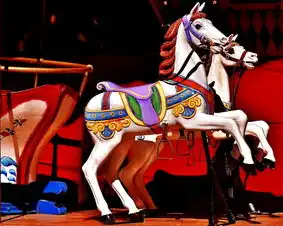In the realm of ancient Chinese philosophy and culture, the art of dream interpretation holds a significant place. One of the most revered figures in this field is Zhou Gong, a statesman and dream interpreter during the Zhou Dynasty. Known for his profound insights and accurate predictions, Zhou Gong's dream interpretation has fascinated scholars and dreamers alike for centuries. This article delves into the world of Zhou Gong's dream interpretation, exploring its origins, principles, and the timeless wisdom it offers.

图片来源于网络,如有侵权联系删除
**Origins of Zhou Gong's Dream Interpretation
Zhou Gong, whose real name was Ji Dan, lived during the Western Zhou Dynasty, around the 11th century BCE. He was a high-ranking official and a counselor to the king, known for his wisdom and ability to foresee future events. It was during his time that the practice of dream interpretation gained prominence, with Zhou Gong being its most celebrated exponent.
The origins of dream interpretation in China can be traced back to the Neolithic period, with evidence of dream symbolism and divination practices found in ancient texts and artifacts. However, it was Zhou Gong who systematized and elevated the art of dream interpretation to a science, using it not only for personal guidance but also for political and strategic purposes.
**Principles of Zhou Gong's Dream Interpretation
Zhou Gong's approach to dream interpretation was based on several key principles:
1、Dream Symbols: Zhou Gong believed that dreams were a reflection of the dreamer's innermost thoughts, fears, and desires. Each dream symbol carried a specific meaning, which could be deciphered to reveal the dreamer's subconscious mind.
2、Dream Sequence: The order in which the symbols appeared in a dream was also crucial. Zhou Gong emphasized that the sequence of symbols provided a roadmap to understanding the dream's message.

图片来源于网络,如有侵权联系删除
3、Personal Experience: Zhou Gong believed that understanding the dreamer's personal experiences and circumstances was essential in interpreting the dream accurately. Dreams were not isolated incidents but were deeply connected to the dreamer's life.
4、Astrological Influence: Zhou Gong also incorporated astrological influences into his interpretations, believing that the positions of the stars and planets at the time of the dream could provide additional insights.
**Examples of Zhou Gong's Dream Interpretations
Zhou Gong's interpretations are filled with stories of his ability to predict events through dreams. One of the most famous examples is the story of King Zhou's dream of a horse dragging a carriage. Zhou Gong interpreted this dream as a sign of impending doom, and his prediction was later fulfilled when the kingdom fell.
Another notable example is the dream of Duke Huan of Qi, who saw himself as a deer. Zhou Gong interpreted this dream as a warning that he would soon lose his power and position. Once again, Zhou Gong's prediction came true, and Duke Huan's influence waned.
**The Timeless Wisdom of Zhou Gong's Dream Interpretation
Zhou Gong's dream interpretation offers timeless wisdom that continues to resonate today. Here are a few key takeaways:

图片来源于网络,如有侵权联系删除
1、Self-Reflection: Dreams are a powerful tool for self-reflection, allowing us to explore our deepest thoughts and emotions.
2、Predictive Power: While dreams may not always predict the future with certainty, they can provide valuable insights and warnings.
3、Personal Growth: Understanding our dreams can help us grow and make positive changes in our lives.
4、Cultural Significance: The practice of dream interpretation is a part of our cultural heritage, offering a window into the minds and spirits of our ancestors.
In conclusion, Zhou Gong's dream interpretation is a testament to the power of dreams and the wisdom they hold. His approach, principles, and stories continue to inspire and educate dreamers and scholars alike, reminding us that the world of dreams is a rich and complex landscape waiting to be explored.
标签: #周公解梦 英文








